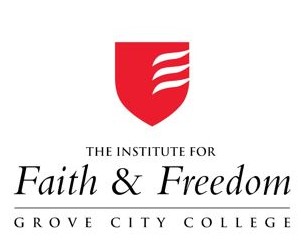GOP Imperative: Rehabilitate “The M-Word”

An angry caller to my radio show recently tried to discredit me by invoking the dreaded M-word.
“You’re a moderate!” he growled. “And moderates are killing the Republican Party!”
Actually, if the high-riding GOP does face a serious threat at the moment it’s coming not from the moderates, but from unreasoning, self-destructive hostility to this all-important group of swing voters. Self-styled conservatives only hurt their own cause if they insist on turning the word “moderate” into a term of contempt or abuse.
First, let the record show that I’ve never identified myself as a moderate in terms of policy. On the issues, I’m a mainstream Reagan conservative, but I remain convinced (like President Reagan himself) that pragmatic strategies and a moderate temperament offer the best means to achieve conservative reform.
On this issue, dictionaries offer better guidance than talk radio blowhards. When checking for synonyms for the adjective “moderate” you come up with the following: reasonable, temperate, judicious, just, cool, steady, calm, pleasant, considered, controlled, sober, careful considerate, peaceable and untroubled.
Doesn’t sound so terrible, does it?
Meanwhile, the antonyms for “moderate”, defining the opposite qualities, include: biased, harsh, imbalanced, incautious, extreme, intolerable, loud, prejudiced, rough, unbearable, violent, wild, agitated, excited, excessive, extravagant, outrageous and unreasonable.
Anybody want to join the “harsh,” “wild” and “unreasonable” party?
When you think about it, moderation amounts to a positive quality in nearly all of life’s endeavors. If you’re moderate in what you eat or drink, how you handle your money, the way you settle disputes or manage your moods, most people would agree that’s a good thing. Why should moderation in politics be viewed as some sort of failing?
When choosing a business partner or a spouse, someone who’s described as “moderate” counts as instantly more appealing than an individual who strikes others as “extreme.” The idea that we judge political candidates on a dramatically different basis makes no sense at all.
According to exit polling, self-described moderates comprise the largest share of voters in every recent election. In the presidential race of 2012, moderates outnumbered conservatives by 41% to 35% (liberals brought up the rear with 25%), and even in the famously more conservative electorate of 2014, moderates topped conservatives by 3 points. Since 1976 and the beginning of modern exit polling, no presidential race has seen the percentage of conservatives topping 35%. It’s therefore obvious that Republicans can never win by appealing to conservatives alone. In fact, President Reagan won both his two landslides not because he won overwhelmingly among conservatives (every Republican does that) but because he did unusually well among moderates.
This doesn’t mean moderate voters should revel in smug celebration of their own superiority. Too often, when people say they’re “independent” or “moderate” it actually signifies that they’re confused and bored by politics, too uninformed, disengaged or undecided to select one ideology over another. It’s true that moderates are frequently un-persuaded, but that doesn’t make them un-persuadable.
The last time a GOP presidential nominee openly, unequivocally denounced moderation he succeeded only in alienating precisely the voters he needed most. “May I remind you that extremism in the defense of liberty is no vice,” Senator Barry Goldwater told wildly roaring delegates in his much-derided convention speech in San Francisco. “And may I also remind you that moderation in the pursuit of justice is no virtue.”
Actually, extremism in defense of liberty can be a vice if extremist tactics serve to undermine that defense, just as moderation would be a virtue if moderate strategies advance your righteous case. In any event, candidate Goldwater managed to lose 44 of 50 states so that his strident rhetoric served neither liberty nor justice.
Reagan, a passionate Goldwater supporter some sixteen years before his own successful campaign for the presidency, offered a far better model for modern Republicans. He remained clear and consistent in his conservative goals but never hesitated in employing moderate means to achieve those ends. He often enraged purists within his own party by authorizing necessary tax increases, agreeing to sweeping arms control agreements, supporting amnesty for illegal immigrants and, as Governor of California, even signing a bill that legalized abortions. He also worked smoothly with the Tip O’Neill Democrats who controlled the House and not once in an eight-year turn did he even vaguely threaten a government shut-down.
It’s a pernicious, self-serving myth that today’s public yearns for a different kind of conservatism that “fights on principle” regardless of consequences. Consider a deeply revealing poll from early December by Pew Research for USA TODAY. The survey asked about expectations for the newly–elected Congress by inquiring: “If Republicans and Democrats in Washington don’t work together to address major issues over the next two years, how much would it hurt?” A stunning 87% expressed the belief that this failure to cooperate would damage the country, and 71% said it would hurt “a lot.” Even more revealing, 73% believed that Congressional gridlock would “hurt me personally” and only 25% thought they’d be damaged “not much” or “not at all.”
There is scant appetite, in other words, for more angry gestural politics, with the immoderate posing and apocalyptic rhetoric of the Cruz Control Kamikaze Kaucus. Instead, the public consistently displays a near-universal desire for pragmatism and collaboration. In light of this obvious eagerness for a new mood in our Washington politics, a good place for the new GOP to start would be rehabilitation of the words “moderate” and “moderation.” Those terms don’t properly amount to insults; they actually connect to the largest group of voters and potential voters and echo the deepest practical instincts and “can do” attitudes at the core of the American political tradition.
This column appeared at TRUTHREVOLT.ORG on December 16, 2014.




















